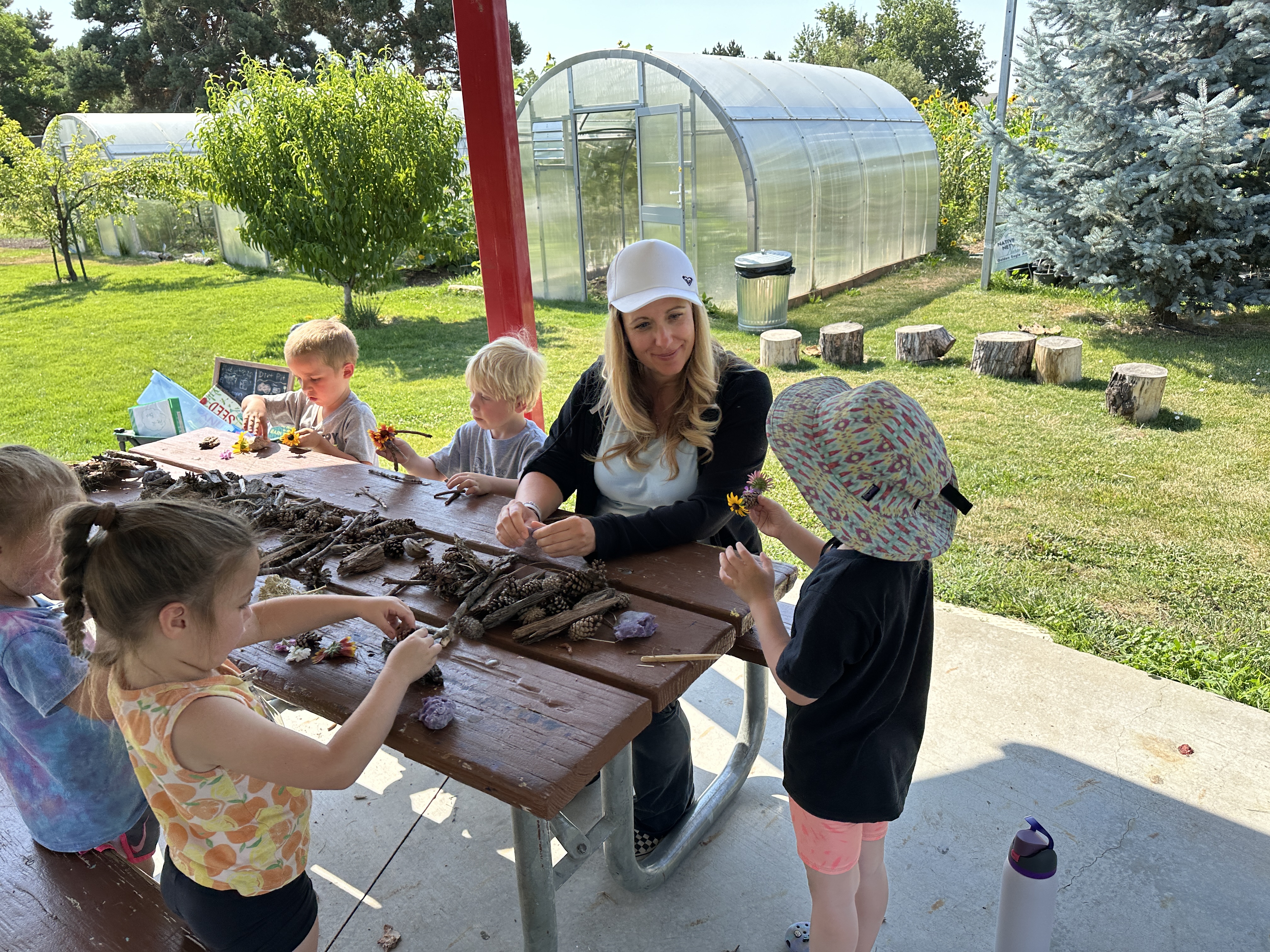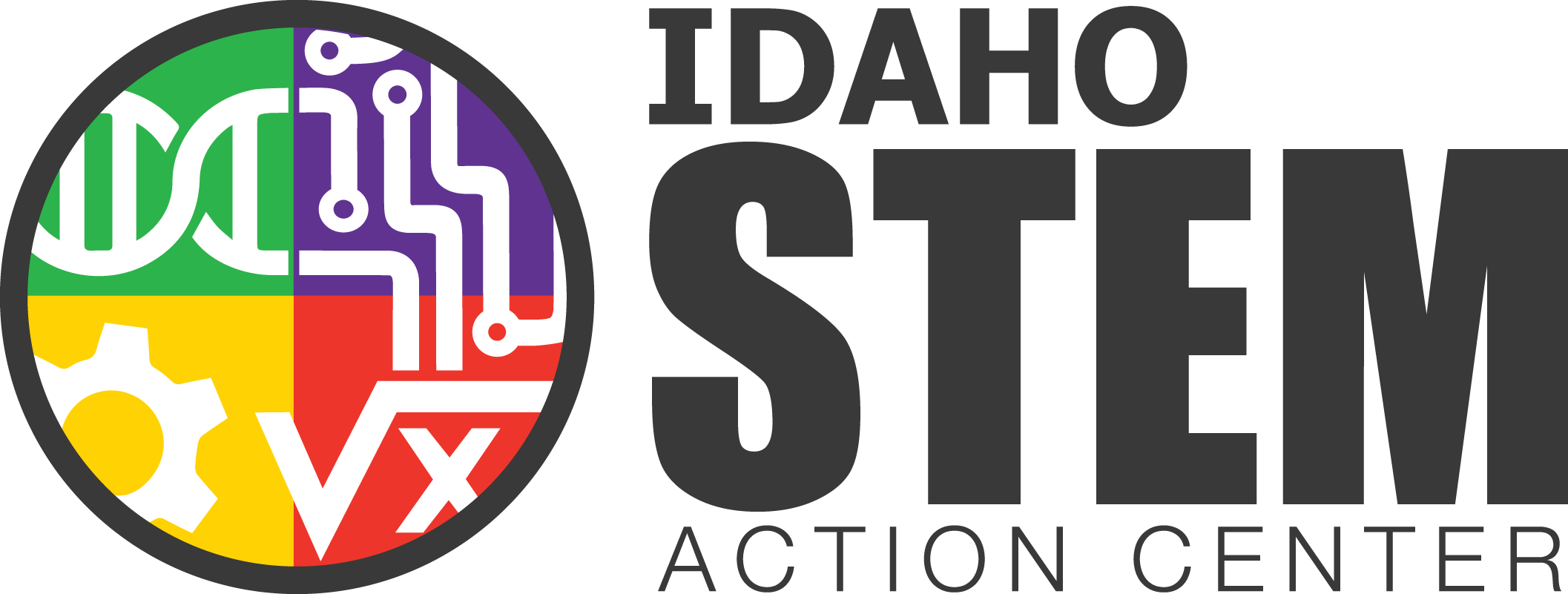Elizabeth Owens at Boise Urban Gardens (BUGS)
 This summer, I had the incredible opportunity to step outside the classroom and into the dirt—literally. I spent my days working with preschoolers and elementary-age students (kindergarten through 3rd grade) in a garden-based camp, and later with tweens and teens at a beekeeping camp at BUGS (Boise Urban Gardens). These experiences not only gave me a fresh perspective on education but also left a lasting mark on how I’ll approach teaching my preschool special education students this year and beyond.
This summer, I had the incredible opportunity to step outside the classroom and into the dirt—literally. I spent my days working with preschoolers and elementary-age students (kindergarten through 3rd grade) in a garden-based camp, and later with tweens and teens at a beekeeping camp at BUGS (Boise Urban Gardens). These experiences not only gave me a fresh perspective on education but also left a lasting mark on how I’ll approach teaching my preschool special education students this year and beyond.
At the garden camp, the kids dove into hands-on learning that was messy, joyful, and full of curiosity. I learned about many new things such as composting, planting seeds, harvesting fruits/ vegetables, and the bugs that help (or hurt) the garden. As I became more familiar with the garden and lessons, I had the privilege of teachings many of them throughout the summer. It was so fun watching a preschooler get excited over a beetle or gently pat soil around a seedling they planted themselves.
Each day ended with something special: lunch made by the culinary camp at BUGS from ingredients harvested right there in the garden. The excitement on the student’s faces when they realized the tomatoes in their pasta sauce or the cucumbers in their salad came from their garden made every moment worth it.
This experience reminded me that young children want to understand how the world works. When we connect learning to their senses—and their sense of purpose—something clicks. For my preschoolers with special needs, I plan to bring more sensory-rich, real-world learning into our routines. Whether it’s planting herbs in small pots, exploring compost bins, looking for bugs on the playground, or role-playing garden jobs, I want my students to feel the same pride and wonder.
Later in the summer, I joined a beekeeping camp for 10–14 year olds. I was hesitant but learned so much from this camp and the older campers. It was a different energy—older kids with more questions, eager to learn all about bees. We taught them all about the honeybee’s lifecycle, pollination, colony roles, the history of honeybees, and the importance of bees in our ecosystem.
The highlight? Watching them extract real honey straight from the hive. Their reactions ranged from shouts of amazement to quiet awe as golden honey streamed out. They bottled it up, labeled it, and took it home proud of what they had helped create.
This camp showed me how meaningful learning becomes when students are empowered to do something real. Even complex topics like sustainability or pollination became accessible and unforgettable through hands-on experiences.
What I Learned & How It Will Shape My Teaching
Here are the biggest takeaways I’m bringing back to my preschool classroom:
- Real-world learning matters – Kids of all ages thrive when they can touch, see, and feel what they’re learning. For my students, especially those with developmental delays or sensory processing challenges, this is essential. I want to bring more nature into the classroom, and more of the classroom into nature.
- Every child can contribute – Whether it’s sorting compost, planting seeds, or tasting freshly picked herbs, every child had a role. I’m inspired to give my preschoolers more ownership over classroom jobs and group projects, no matter their abilities.
- Curiosity is the best teacher – I watched children light up when they were given the freedom to explore and ask questions. I want to make more space for wonder in my teaching—fewer teacher led activities- more discovery.
- Learning can be joyful and messy – And it should be. Getting dirty in the garden and sticky with the honey wasn’t just fun, it was powerful. I’m reminded that real learning often looks like play, especially for preschoolers.
Looking Ahead
As a preschool special education teacher, I’m always seeking ways to meet my students where they are—and this summer showed me just how rich and effective outdoor, sensory-based, inquiry-driven learning can be. It doesn’t have to be fancy. A few pots on the windowsill, a magnifying glass at the bug bin, or a pretend beekeeping station in dramatic play can spark the same joy and curiosity I saw at camp.
The garden and the hive gave me new tools and fresh inspiration. It was such a pleasure to have the opportunity to spend the summer at BUGS and I would highly recommend it to anyone.
Grade Level and Subject Taught: Prek-8th

